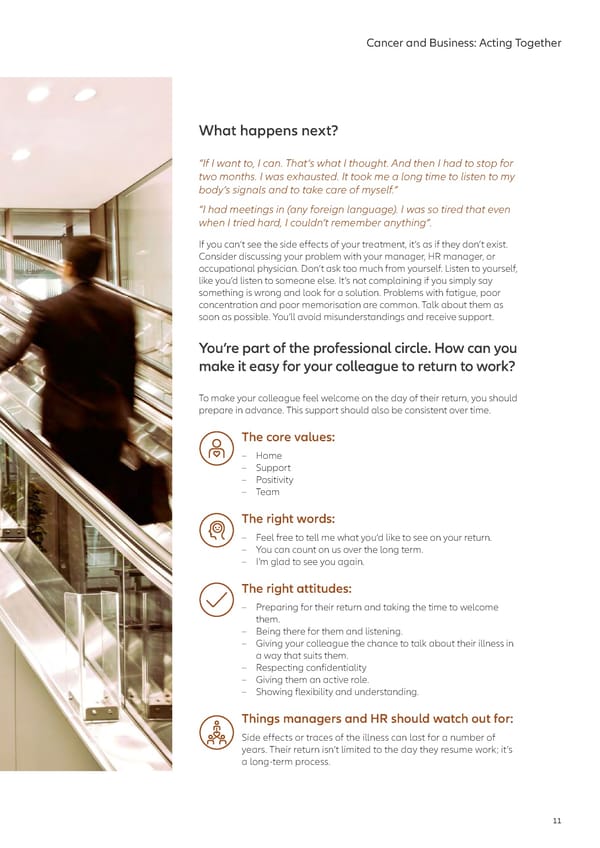Cancer and Business: Acting Together What happens next? “If I want to, I can. That’s what I thought. And then I had to stop for two months. I was exhausted. It took me a long time to listen to my body’s signals and to take care of myself.” “I had meetings in (any foreign language). I was so tired that even when I tried hard, I couldn’t remember anything”. If you can’t see the side effects of your treatment, it’s as if they don’t exist. Consider discussing your problem with your manager, HR manager, or occupational physician. Don’t ask too much from yourself. Listen to yourself, like you’d listen to someone else. It’s not complaining if you simply say something is wrong and look for a solution. Problems with fatigue, poor concentration and poor memorisation are common. Talk about them as soon as possible. You’ll avoid misunderstandings and receive support. You’re part of the professional circle. How can you make it easy for your colleague to return to work? To make your colleague feel welcome on the day of their return, you should prepare in advance. This support should also be consistent over time. The core values: – Home – Support – Positivity – Team The right words: – Feel free to tell me what you’d like to see on your return. – You can count on us over the long term. – I’m glad to see you again. The right attitudes: – Preparing for their return and taking the time to welcome them. – Being there for them and listening. – Giving your colleague the chance to talk about their illness in a way that suits them. – Respecting confidentiality – Giving them an active role. – Showing flexibility and understanding. Things managers and HR should watch out for: Side effects or traces of the illness can last for a number of years. Their return isn’t limited to the day they resume work; it’s a long-term process. 11
 Cancer and Business: Acting Together Page 10 Page 12
Cancer and Business: Acting Together Page 10 Page 12